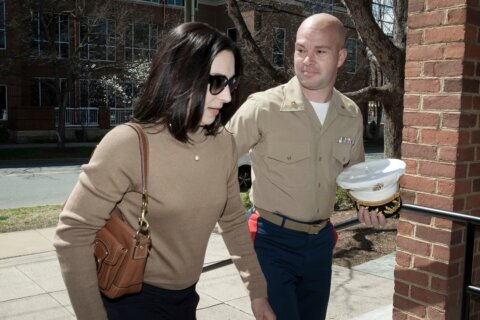WASHINGTON — If it seems like parenting is harder these days than in decades past, Thomas Lickona said that feeling isn’t unfounded.
In fact, the developmental psychologist and professor of education emeritus at SUNY Cortland said we live in a world where “it’s tougher than ever to grow up, and tougher than ever to parent,” and a few big cultural changes are contributing to this plight.
There’s the inescapable angry political climate and the dominance of screens and social media. There’s also a more consistent sense of entitlement in children that stems from pressures of achievement.
“Parents are so worried about getting their kids into the best colleges that they don’t have chores, they don’t have responsibilities — parents are doing all of that — and kids are getting a free ride and growing up self-centered and entitled,” Lickona said.
“All of these create a difficult environment in which to raise our children, but it’s still possible to do that in a way that makes an impact,” he said.
In his latest book, “How to Raise Kind Kids,” Lickona helps parents navigate life’s common complexities with a focus on fostering kindness. He recently spoke with WTOP and shared insight from more than 40 years studying the subject.
Establish a channel of influence
The influence one has on a child depends on the quality of the relationship. When kids feel attached to a person, that person has a greater influence, Lickona said.
Because of this, one-on-one time with children is very important.
For busy parents with multiple children, this can be especially difficult — but not impossible. The time can be as simple as an evening reading ritual, or a few hours of scheduled time on the weekends.
To make the most of your time with that child, spark meaningful conversation. Ask what’s on their minds these days, what they’re worried about, or maybe something they accomplished that they’re proud of.
“Then, ask your child to ask you a question in return so it’s a genuine exchange of thoughts and feelings and experiences,” Lickona said.
“All of these are ways of deepening our relationship, making that a more meaningful relationship, and giving us a channel of influence.”
Work on an attitude of gratitude
Part of being kind is being thankful for what you have and thinking of what others need. That’s why establishing an attitude of gratitude is so important, even at an early age.
Practicing gratitude can be as easy as going around the dinner table and saying what you are grateful for that day, or jotting down a list of privileges you take for granted — education, shelter, family, etc. — and reading that list each morning.
Lickona met one family that has a “thank the cook” ritual at the end of each meal, where everyone present says something positive about the meal they just ate.
“You teach that your attitude is a choice. It’s important for kids to understand that their whole character is, in large measure, a product of the choices that they make,” Lickona said.
“So if you create these kinds of rituals and build this into family life, it has a better chance of taking root in a child’s character.”
Correcting misbehavior
Kids will act out and practice unkind behavior at some point — whether toward a classmate or a sibling, and Lickona has some advice on how to correct it.
First, he said, if you find out your child did something that hurt someone else, “correct with clarity and feeling.” For example, if your preschooler pulls a classmate’s hair, explain that the action hurt someone and send a strong message that hurting is a big deal.
“Children who are corrected in that way are more likely, subsequently, to be helpful when a child is crying on a playground,” Lickona said.
Another option is to institute a practice of required restitution, where when a child does something wrong, they do something right to make up for it.
For example, if there’s sibling conflict in the house, consider keeping a “job jar” handy, filled with chores written on strips of paper. If one child does something that hurts another, have the offender pull out three strips of paper, choose one chore to do, and put the others back.
“It’s an apology of action,” Lickona said.
Giving kids the chance to practice positive behavior is another course of action. If they speak disrespectfully or unkindly, have them reflect and ask how they might say something kinder or in a more respectful manner.
Don’t get down
Lickona said it’s important for parents not to get down if “things go off the rails.”
“Families inevitably struggle and deal with conflict, but don’t let discouragement get the best of you,” he said.
Instead, acknowledge a bad day — or week — pull together, and get past it.






